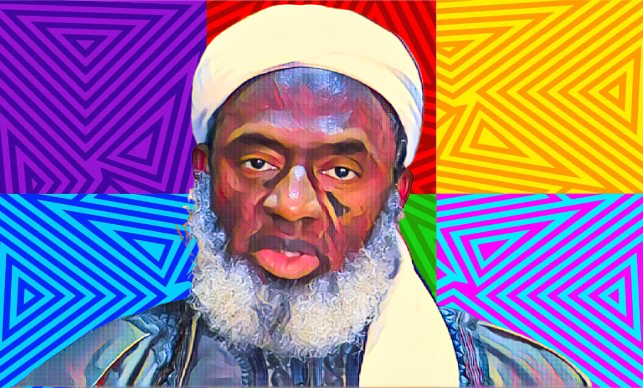KEY POINTS
-
Saudi Arabia barred Nigerian cleric Sheikh Ahmad Gumi from performing Hajj and deported him, citing his political views as the reason.
-
Gumi was part of a Nigerian delegation sponsored by NAHCON but was denied entry upon arrival in Medina.
-
The incident has raised questions around religious freedom, diplomatic relations, and the intersection of politics and pilgrimage in the Muslim world.
In a development that has stirred diplomatic and religious discussions, Saudi Arabian authorities have barred prominent Nigerian Islamic scholar Sheikh Ahmad Gumi from performing the 2025 Hajj pilgrimage and subsequently deported him back to Nigeria.
The move, which occurred despite the cleric holding a valid Hajj visa, is reportedly linked to his outspoken political views, which allegedly clash with the Kingdom’s policies.
Sheikh Gumi, who is widely known for his commentaries on both religious and geopolitical issues, was among a delegation of clerics sponsored by the Nigerian Hajj Commission (NAHCON) to travel to the holy cities of Saudi Arabia for this year’s pilgrimage.
He arrived at the Prince Mohammad bin Abdulaziz International Airport in Medina over the weekend, along with other religious leaders from Nigeria. However, upon arrival, Saudi immigration officials denied him entry, refusing to allow him to proceed with the pilgrimage rites.
Saudi authorities cite political views as grounds for exclusion
According to sources familiar with the incident, Sheikh Gumi’s deportation stems from his controversial positions on international political issues, some of which may have been interpreted by the Saudi government as inconsistent with the Kingdom’s political or religious positions. While Saudi officials have not publicly commented on the matter, the move has reignited questions about how political expression can affect participation in religious obligations, especially in a country that hosts Islam’s holiest sites.
Following his deportation, Sheikh Gumi expressed appreciation to Nigerian authorities for pledging to intervene diplomatically on his behalf. “I am grateful to the Nigerian government for their readiness to engage the Saudi authorities over this unfortunate development,” he stated.
This incident has triggered mixed reactions in Nigeria and beyond. Supporters of Sheikh Gumi view the action as an infringement on religious freedom and a politicization of spiritual practices. Others argue that states have the sovereign right to deny entry to individuals whose public positions may be deemed a threat to national cohesion or foreign policy interests.
International relations analysts say the incident could create friction between Nigeria and Saudi Arabia, two nations with long-standing religious and economic ties. “This isn’t just about a visa denial—it’s about the delicate balance between religious diplomacy and political speech,” said Dr. Farida Ahmed, a lecturer in international relations at Bayero University Kano.
AAN TV reports that Saudi Arabia has occasionally been criticised for using visa control and travel restrictions as tools to manage political dissent or silence controversial figures from participating in major Islamic events.
This includes clerics, journalists, and activists from various countries who have been denied entry in the past for reasons ranging from public criticism of Saudi leadership to association with reformist movements.
Sheikh Gumi, a former military officer turned cleric, has become a polarizing figure in Nigerian public discourse. While many respect his calls for negotiation with armed groups in northern Nigeria, others accuse him of taking lenient stances toward individuals and groups designated as security threats. His views on issues such as regional militancy, governance, and foreign involvement in the Sahel have often drawn media attention and criticism.
As Nigeria’s Hajj operations proceed with other delegates in the Kingdom, the government has yet to issue a formal statement on how it intends to approach the matter with Saudi authorities. However, officials at NAHCON confirmed that discussions are underway and emphasized that the situation remains under review.



